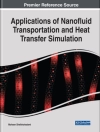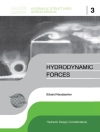This book provides comprehensive description of polymeric membranes in water treatment and remediation. It describes both the sustainability challenges and new opportunities to use membranes for water decontamination. It also discusses the environmental-related issues, challenges and advantages of using membrane-based systems and provides comprehensive description of various polymeric membranes, nanomaterials, biomolecules and their integrated systems for wastewater treatment. Various topics covered in this book are direct pressure-driven and osmotic-driven membrane processes, hybrid membrane processes (such as membrane bioreactors and integrating membrane separation with other processes), and resource recovery-oriented membrane-based processes. The book will be useful for students, researchers and professionals working in the area of materials science and environmental chemistry.
Зміст
Polymeric Membranes for Water Treatment and Desalination.- Sustainable Wastewater Treatment using Membrane Technology.- Polymeric Nanocomposite Membranes for Treatment of Industrial Effluents.- Polymeric Nano-composite Membranes for Wastewater Treatment.- Membrane based Technologies for Industrial Wastewater Treatment.- Membrane Bioreactor: A Potential Stratagem for Wastewater Treatment.- Removal of Toxic Emerging Pollutants using Membrane Technologies.- Biopolymeric Hydrogels: A New Era in Combating Heavy Metal Pollution in Industrial Wastewater.- Resource Recovery by using Polymer Membrane.- Antibacterial and Antifouling Properties of Polymer Membranes.- Life Cycle Analysis of Membrane Processes.
Про автора
Dr. Ashok Kumar Nadda is currently an Assistant Professor in the Department of Biotechnology and Bioinformatics, Jaypee University of Information Technology, India. He holds research and teaching experience of over 10 years in the field of microbial biotechnology, with research expertise focusing on various issues pertaining to nano-biocatalysis, microbial enzymes, biomass, bioenergy and climate change. Dr. Nadda teaches courses on enzymology and enzyme technology, microbiology, environmental biotechnology, bioresources and industrial products to the bachelor, master and Ph.D. students. He also trains students for enzyme purification expression, gene cloning and immobilization onto nanomaterials experiments in his lab. He worked as a post-doctoral fellow in the State Key Laboratory of Agricultural Microbiology, Huazhong Agricultural University, China. He also worked as a Brain Pool researcher/Assistant Professor at Konkuk University, South Korea. Dr. Nadda has a keen interest in microbial enzymes, biocatalysis, CO2 conversion, biomass degradation, biofuel synthesis, and bioremediation. He has published over 150 scientific contributions in the form of research, review, books, book chapters and others in various journals of national and international repute. The research output includes 130 research articles, 48 book chapters and 25 books. He is also a member of the editorial board and reviewer committee of the various journals of international repute.
Dr. Priya Banerjee is presently serving as Assistant Professor, Department of Environmental Studies, Centre for Distance and Online Education, Rabindra Bharati University, Kolkata. She has completed her masters in Environmental Science from University of Calcutta, Kolkata. After qualifying UGC NET in Environmental Science, she completed her Ph D research from the Department of Environmental Science, University of Calcutta, Kolkata. She has several national andinternational research articles to her credit. She has also participated in various national and international seminars till date and has received awards for best platform and poster presentations at the same, including the best poster presentation award at the 100th Indian Science Congress, held at Kolkata. Her current research interests include integrated waste management and toxicology strategies. She is presently in research collaborations with several national and international institutes.
Dr. Swati Sharma is working as assistant professor at University Institute of Biotechnology, Chandigarh University, India. She has been working in the field of food and environmental biotechnology for the last eight years. She has a keen interest in biopolymers, polymeric nanocomposites, waste management and wastewater treatment technologies. She completed her Ph.D. from University Malaysia Pahang, Malaysia. She worked as a visiting researcher in College of Life and Environmental Sciences at Konkuk University, South Korea. Dr. Sharma completed her master’s degree from Dr. Yashwant Singh Parmar University of Horticulture and Forestry, India. She has also worked as program co-coordinator at Himalayan action research center Dehradoon and Senior research fellow at India agricultural research institute. Dr. Sharma has published more than 40 research outputs in the form of research papers, review articles, books book chapters and conference proceedings in reputed international journals. Presently, Dr. Sharma’s research is in the field of bioplastics, hydrogels, keratin nano-fibres and nano-particles, biodegradable polymers and polymers with antioxidant and anti-cancerous activities and sponges.
Phuong Nguyen-Tri is a professor at the Department of Chemistry, Biochemistry and Physics, Université du Québec à Trois-Rivières (UQTR), Canada. He is the founder of the Laboratory of Advanced Materials for Energy and Environment (Nguyen-Tri Lab) at UQTR and holds the UQTR Research Chair of Advanced materials for Health and Security at work. He obtained his M.Sc. degree from École Nationale Supérieure de Chimie de Mulhouse, France and a Ph.D. degree in Material Sciences from the Conservatoire National des Arts et Métiers, France, in 2009. His main research interests are nanomaterials, hybrid nanoparticles, smart coatings, polymer crystallization, polymer aging and polymer blends and composites. He is also visiting Professor at Ude M and associate Professor at ETS of Montréal, regular member of I2E3, CQMF and CREPEC of Quebec. His main research interests are nanomaterials, polymeric membranes, biomaterials, valorization of biomass, hybrid nanoparticles, smart coatings, polymer crystallization, polymer blends and composites. Dr. Nguyen has edited 14 books and monographs. He served as editor of 10 special issues in the ISI indexed journals.












